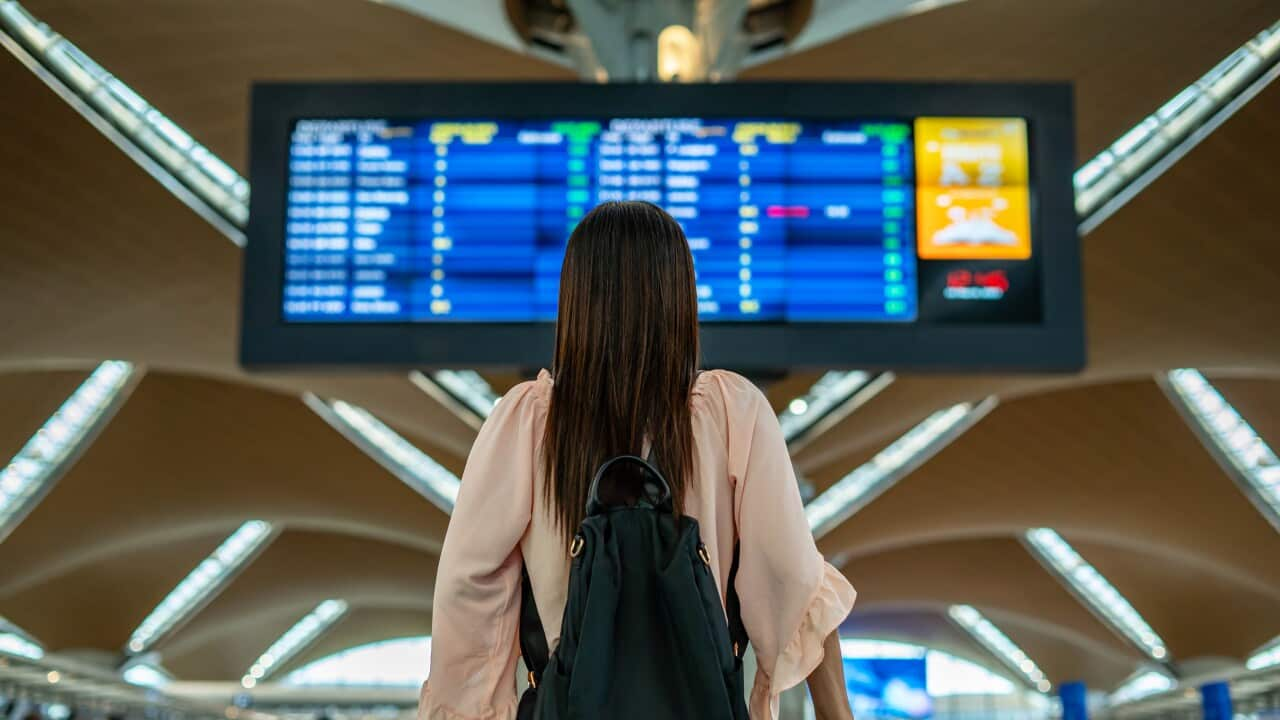With Iran-Israel tensions remaining high, many flights through the Middle East are being rerouted, rescheduled or even cancelled.
The usually busy airspace stretching from Iran and Iraq to the Mediterranean has been largely empty of commercial air traffic since Israel began strikes on Iran on 13 June.
International carriers have cancelled or rerouted to aviation hubs like Dubai and Doha, some of the busiest airports in the world.
Aviation expert Keith Tonkin said air spaces above a country are sovereign to that country, meaning political leaders decide to close the airspace.
A country's civil aviation authority then publishes the information to airlines.

"Airlines will plan based on the airspace available and then the most efficient routing, and if airspace is closed and the traditional flight paths are not available to them, they'll plan elsewhere," he said.
"But also, some airlines may have decided prior to that, to avoid the airspace ... due to their own risk management."
What does this mean for Australian travellers?
With the Russian and Ukrainian airspace also closed to most airlines due to years of war, the Middle East has become a more important route for flights from Europe to Asia and Australia.
The war has also disrupted travel into the Middle East itself.
Tonkin said closing airspace can often lead to longer flight times, disrupted schedules, and increased costs.
"Particularly, fuel burnt increases; therefore, the cost of the flight increases. And most likely, we'll see fuel prices rise as a result of this conflict as well," he said.
"So that will be an input cost that will no doubt be passed on to the travelling public."
Dean Long, CEO of the Australian Travel Industry Association, said some Australian travellers have already been impacted by the Israel-Iran conflict through cancelled or rerouted flights.
He said conflict can also impact anxiety levels ahead of a trip.
"What we're finding at the moment is that anxiety is then feeding into: 'Am I going to be stuck in Europe or the Middle East?'" he said.
"So we are finding that, across the community, there is an increased level of anxiety and inquiry about what would happen."
What should you do if you have a trip coming up?
In a statement on social media, Foreign Minister Penny Wong said Australians should seek updates from airlines and follow Smartraveller for the most up-to-date advice and warnings.
Tonkin said travellers should not be concerned about their safety on commercial flights, with airlines making "deliberate choices" about safety and where they fly.

However, more aircraft taking different routes could lead to some congestion and disruption, he added.
"Passengers should be aware that the major airlines will be doing everything they can to make sure their operations are safe, that they're flying their aircraft on the right routes that have safety embedded in their flight paths and the operational airspace that they're flying through," he said.
"And be prepared for disruptions, because no doubt, there'll be more change to come."
ATIA is advising Australian travellers to remain informed and not to cancel their flights, as this could void their rights to refunds.
Long said airlines will cancel or reschedule flights if airspaces look unsafe, and have established systems in place to deal with disruptions and restrictions.
"Sitting still, waiting for the airline and the [travel] agency to contact you to support you through that moment is the most important aspect," he said.
"If you are feeling nervous about the future, bear in mind there are people that are impacted now and tomorrow and at 72 hours after that, we are prioritising the support for them as we go through that process."
He also said the evolving situation and ongoing disruptions underscore the importance of travel insurance, booking through reputable providers, and understanding your policy.
Long also noted that war and conflict are often not covered under insurance policies.
"We have seen a number of countries actually taken off travel insurance policies as those conflicts have picked up, so you need to be very aware of that and how that works," he said.
"What we do know is if you are disrupted mid journey, then most travel insurance policies will support you on that."
— Additional reporting by the Australian Associated Press
For the latest from SBS News, download our app and subscribe to our newsletter.

